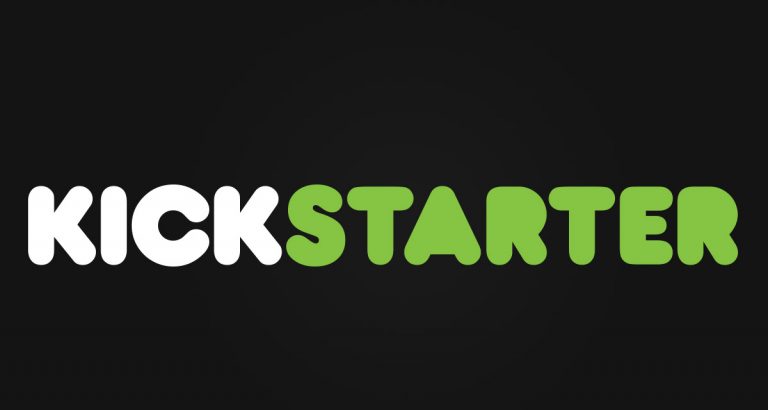Crowdfunding is a rebellious notion. The idea that a group of people could get together and pool their funds to determine the kind of games they want to see is something very radical from the publisher-centric world of game development we have lived in for so long. Crowdfunding is nothing new to entertainment. Theaters have been using crowdfunding for years to support their seasons but have ever only been able to tap into local donors and philanthropists. This business model has not only sustained theatre, but other fine arts such as the visual arts or concert halls. The idea is that people love these art forms so much, they are willing donate extra money to the cause without expectation or reward. Look at the back of playbill or a museum newsletter and you will see the true idea of crowdfunding.
While crowdfunding has existed for years, in the internet age the idea has become antiquated. The world is more connected than ever before and people are no longer looking to donate to their local orchestras or theaters in light of tight economic times. But in 2009 Kickstarter took the idea of crowdfunding, dressed it up for a new generation and introduced it to the internet, changing the independent entertainment world in a profound fashion.
At first, Kickstarter was met with resounding approval, especially in the games community. When Double Fine used the website to raise money for their new Adventure Game, they blew away their fundraising goals and proved the validity of the website as a fundraising tool. More games followed, over the past few years it felt like anyone who was anyone in the games industry was turning to Kickstarter to fund their passion projects. Artists were inspired by the money people were rushing to hand out in order for them to pursue their visions, and consumers were inspired by seeing the games that stopped treating them as focus-tested demographics. Finally the guy sitting in his New Jersey townhome could find the game he always wanted being made by a Texas college student and contribute money to see the dream become a reality with a few clicks of the mouse.
Then blow back came, as it always does. Projects started to collapse, failing to deliver the product they promise. Games that were promised within a year were failing to deliver on time, and uncomfortably silent about when they would have something to show. People started to raise issue with the way Kickstarter lacked accountability for failed projects and the lack of compensation for people who bravely invested money into unproven products. Larger questions began to be asked about the kinds of companies seeking money through Kickstarter. If names like Double Fine, Obsidian, and Kenji Inafune were seeking money on Kickstarter would it still leave room for the little guys who had nowhere else to turn to fund their dreams? Could Kickstarter maintain its goodwill roots and cater to the independent artists it was built for?
It’s still too early to definitely say how beneficial Kickstarter really is for the video game medium. I wrote an article last year that contained a lot of skepticism about Kickstarter, then wrote an article a few months later about how the state of AAA development convinced me to donate to Massive Chalice. Of the dozens of funded games, only a handful have actually seen release. We are still awaiting big titles like Shroud of the Avatar, Star Citizen, Pillars of Eternity, and Mighty No. 9. But here is a list of Kickstarter’s highest profile games released thus far, their scores, and their end result.
Kentucky Route Zero — $8,583– 81.5 (average) Metacritic
Kentucky Route Zero was released in the early spring of 2013 to a warm critical reception. While the game asked for an extremely small budget compared to many other high profile titles, it still delivered a visually striking and narratively intriguing experience. While the first two acts have been considered a success, it has been months since any public news has come from developer Cardboard Computer. At this time, we do not definitively know where the game is.
Chivalry: Medieval Warfare –$85,934– 79 Metacritic
Multiplayer combat arenas are nothing new to video games,but Torn Banner Studios came at the idea with a different approach, making a game that took the idea and blended it with the hand-to-hand warfare from the dark ages. Starting as a Half-Life 2 mod, not only has the game received decent reviews, but even better is how the community of the title remains passionate since the October 2012 launch.
FTL: Faster Than Light –$200,543–84 Metacritic
The dream project of 2k Shanghai alums, FTL: Faster Than Light is another game that rode the wave of Double Fine’s Kickstarter success, raising 20 times it’s asking price of $10,000. Releasing at the tail end of 2012, FTL: Faster Than Light was a critical success, with game of the year commendations and appearing on multiple top ten lists.
Republique –$555,662– 79 Metacritic
On April 11, 2012 Camouflaj founder, Ryan Payton, created a Kickstarter campaign to start bringing “real games” to the iOS system. Republique pursued one of the larger asking-budgets in the early days of Kickstarter, seeking a funding goal of $500,000. The game’s first act was released this Christmas, delivering a visually striking, but mechanically uneven product.
Leisure Suit Larry RELOADED– $655,182– 56 Metacritic
The biggest contrarian to the Kickstarter dream is easily the reboot of the sex-crazed Leisure Suit Larry. Asking for half a million dollars in funding, Replay Games promised to bring back the comedic labido-drive character. Unfortunately, the game received a negative critical reception, with most critics lamenting the game’s lackluster mechanics. If the poor release wasn’t bad enough, Replay Game’s CEO, Paul Trowe was involved in a scandal this past December of last year, resulting in structural upheaval.
The Banner Saga –$723,887–82 Metacritic
One of the most recent releases emerging from Kickstarter funding is The Bannger Saga. Developed by a three-man team out of Austin, TX, the game was funded to the tune of 700% of it’s $100,000 goal, again riding the notoriety of Double Fine’s success. Stoic Studio’s Viking-fantasy was another title that was highly praised upon release, mechanically fantastic while technically flawed.
Shadowrun Returns –$1,836,447– 80.5 (average) Metacritic
The Shadowrun franchise has long had a niche following that has feverishly supported its world of sci-fi-meets-fantasy. So when developer Hairbrained Schemes turned to crowdfunding to support its vision of a Shadownrun video game, the idea was met with the fervor you would expect. Shadowrun Returns was release this past summer to mixed reviews, praising the preservation of the Shadowrun world, but lamenting its lack of depth.
Broken Age: Act 1 — $3,336,371– 82 Metacritic
When you say Kickstarter Broken Age might not be the first name you think of, you might think of the Ouya or Veronica Mars instead. Yes, the game is far from the most prominent project ever funded. Nonetheless, it is impossible to ignore Broken Age’s importance in crowdfunding and Kickstarter. While Broken Age was delayed from its original release date and announce onlya partial product to drop this year, the game has had a positive reception from critics with the promise of a great second act.
What is the final word of Kickstarter? Looking back at this collection of games that got their start from Kickstarter funding, the majority of these titles were a success. Most games have received praise, while only a couple have had truly negative receptions. This list is obviously not comprehensive, and there are plenty of other stories that are both negative and positive. We also still have to wait and see how many upcoming games pan out, but as these games start to come out it has been nice to see titles that were thought to be abandoned and languishing, find a home for release. The jury is still out on Kickstarter, but there is plenty of hope to be had.









The Leisure Suit Larry reboot sucked hard. I’m so sorry I wasted money on it. Was I drunk when I pledged this? 🙁